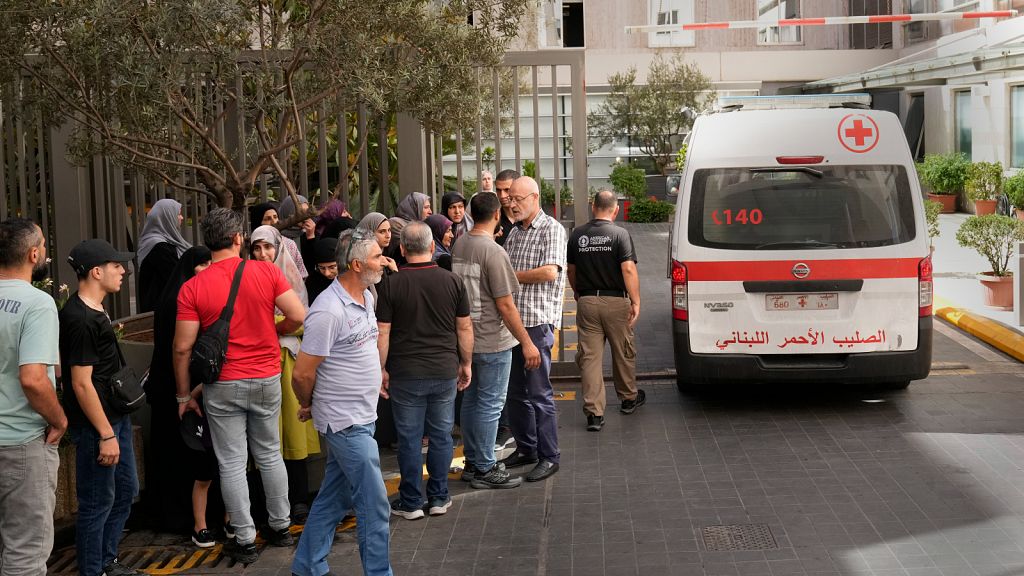
Pagers used by members of Hezbollah exploded in Beirut and southern Lebanon on Tuesday in what appears to be a remote attack, killing 12 people, including two children, and injuring 2,800 including 300 people critically, according to Lebanon’s health minister Firas Abiad.
Both Lebanese caretaker information minister Ziad Makary and Hezbollah have alleged Israel is behind the pager explosions, with a US official also confirming to the Associated Press that the pagers exploded as part of an Israeli operation.
Hezbollah, which is backed by Iran and designated a terror organisation by the United States and the UK, emerged during the Lebanese civil war. Tensions with Israel date back to the 1980s with the militant group declaring Western powers and Israel as their enemies in a manifesto.
Hezbollah fought a civil war against Israeli forces in 2006 and has engaged in cross-border attacks in the last year since the war with Hamas broke out in October.
Hezbollah politician Ibrahim Al Moussawi called the attack a “criminal aggression,” with the Islamist militant group has said they would continue to defend Lebanon.
Related
Why is Hezbollah using pagers to communicate?
A pager is a small wireless communications device that is used to receive messages via radio signals. They were widely used before smartphones.
As a non-state actor with limited capabilities, Hezbollah has used pagers in the past to avoid Israeli interception, according to Elijah J Magnier, a veteran war correspondent and analyst who has been covering the region for 37 years.
“Hezbollah was very determined this time to prevent members from using the mobile phone because any phone that is connected to the Internet is easily accessed by the very advanced Israeli electronic capability,” he told Euronews Next.
How could the pagers have been tampered with?
SMEX, a Lebanese digital rights NGO, said in an analysis article after the attack that there were multiple possible scenarios for how the pagers could have been detonated.
They say the devices could have been tampered with during transit or shipping and set to detonate on a timer or via a radio signal.
Multiple experts also told the Associated Press that small explosive devices may have been built into the pagers and remotely triggered.
SMEX also speculated that the devices could have been exploited to overheat the batteries, a scenario that some experts have since cast doubt on in media reports and social media posts.
Magnier told Euronews Next that the pagers that exploded were not older ones but rather a new batch that arrived recently. This has also been reported by other news agencies citing Hezbollah officials.
Related
“Hezbollah had the capability to inspect these pieces of equipment but it looks like these obviously have a superior technology and capability,” Magnier said, adding that the Israelis may have “managed to implant a very small amount of explosive, of highly explosive material” in the pager’s electronic circuit.
“This is why it is very difficult for a normal inspection to identify, in particular, when the pager was working,” he said.
A senior Lebanese security source confirmed to Reuters on Wednesday, meanwhile, that Israel’s spy agency put explosives inside thousands of pagers that were imported into Lebanon months ago.
Euronews Next has reached out to the Israeli defence ministry for comment.
EMEA Tribune is not involved in this news article, it is taken from our partners and or from the News Agencies. Copyright and Credit go to the News Agencies, email news@emeatribune.com Follow our WhatsApp verified Channel





